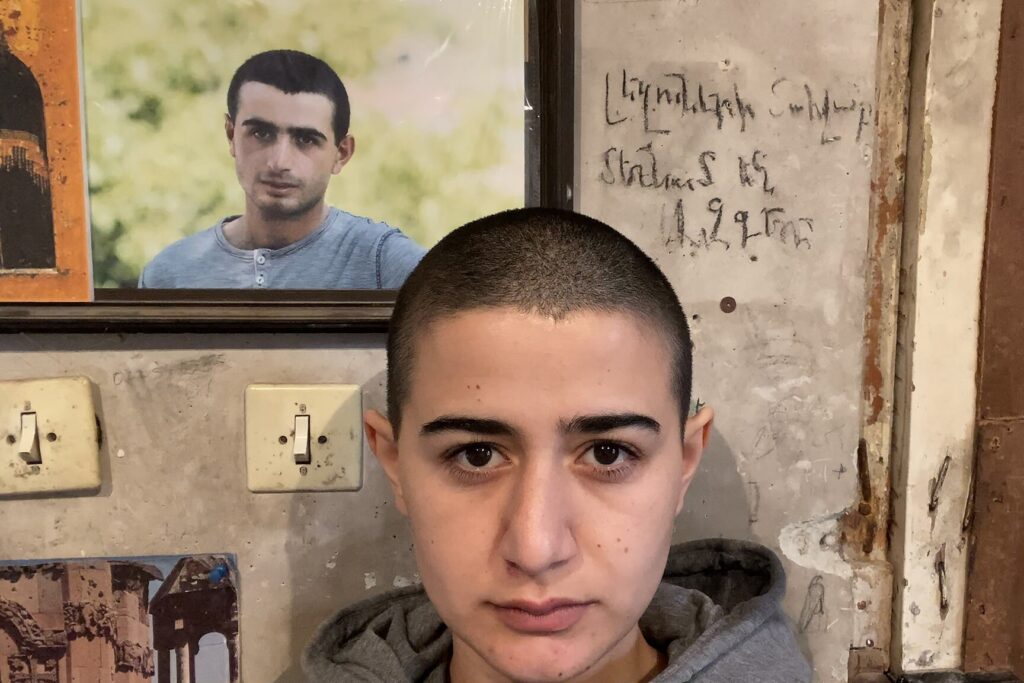A decision by Armenia’s national film academy to nominate a film by one of its board members to the Oscars over an award-winning documentary centred on the 2020 Nagorno-Karabakh War has caused controversy in the country.
Produced in 2023, Shoghakat Vardanyan’s debut feature documentary 1489 focuses on her family’s two-year search to find her brother, Soghomon Vardanyan, a conscript who went missing during the first days of the Second Nagorno-Karabakh War. The title refers to the number assigned to Soghomon Vardanyan’s body before it was identified.
The film was met with acclaim on the international film circuit, including at the world’s largest documentary film festival — the International Documentary Film Festival of Amsterdam — where it won the Grand Prize.
Despite these accolades, Armenia’s Film Academy announced on 5 September that it had selected board member Edgar Baghdasaryan’s feature film Yashan and Leonid Brezhnev as the country’s official Oscar nomination. This absurdist tragicomedy follows the elderly Yasha as he tries to hold on to a Soviet past, including imagining conversations with former Soviet leader Leonid Brezhnev, along with other prominent Communist figures.
On 11 October, the ‘Eye for an Eye’ community of Armenian documentary filmmakers, photographers, writers, and artists urged the Armenian National Film Academy to review its decision, claiming that Baghdasaryan's film ‘has not had international exhibitions and has not won international awards’.
‘An injustice has occurred in the field of Armenian cinema and it is not the most resonant, prestigious, and strong Armenian production film that will represent Armenia at the Oscars’, the group stated. They added that Vardanyan’s film could have been the first Armenian film to receive an Oscar.
The following day, Edik Baghdasaryan, the editor-in-chief of the investigative media outlet, Hetq, shared the preliminary outcome of their ongoing investigation into the issue, noting that only two out of the 30 members of the Film Academy voted for 1489. In his post on Facebook, Baghdasaryan hinted at corruption within the film academy, and stated that Hetq was trying to find out ‘who opposed Shoghakat's film and why they voted for Edgar Baghdasaryan's film’.
‘Naturally, it did not occur to Edgar Baghdasaryan to withdraw his film and give Shoghakat, who does not represent their community, an opportunity to represent Armenia. Shoghakat's film has already won many awards, and I am sure that it would also win an award at the Oscars,’ Baghdasaryan wrote.
These two posts were widely shared online, with social media users criticising the academy’s decision.
‘Generational change does not happen with age and pretty eyes alone, a change of mind and activity is needed, maybe one day we will see honest and transparent, bold operating structures’, wrote Seda Grigoryan, a documentary filmmaker.
On 14 October, the Secretary of the Armenian National Film Academy, Natalya Ghazanchyan, responded to the Eye for an Eye appeal.
‘Film Academicians do not take into account the list of awards received by the film, but are guided by its artistic merits, based on their rich experience in the film industry’, she wrote.
She added that Baghdasaryan's film had won five out of nine possible awards at the Film Academy’s Anahit awards. She also noted that selections were made through a closed vote, and that any member of the Film Academy with a connection to a submitted film was not allowed to participate in the voting process.




 15 October 2024
15 October 2024



